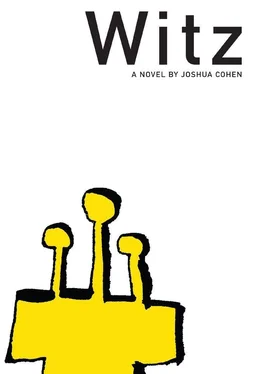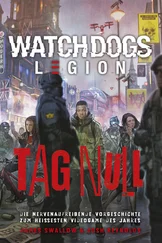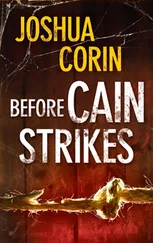A bird executes its spirals high above the parapet of a Town Hall; it’s off to the cupola of the Church when the hour strikes…frightened, a mortality of wings with the span of a psalter. A stubby stooped who knows what, whether conjugated masculine, feminine, or both or neither, and just old — old the same appellation as this part of town, Old Town — sits on a bench, cadastral registry #1492, done with his or her scattering to this bird and others, them all: the bird, or Bird, however it’s registered, Spinozist, Platonic…a handful of soapflakes this tubby lubber thinks is feed, then sips at a cup of groggy med, dabs lips with cuff and in words no one understands, are they even words how should He know, addresses the problems of an earlier regime. This person, too, is on payroll, you have to think, be cautious, aware, they all are, and Him as well, maybe, I hope not, what’re they making these days, let me sleep on it…perhaps even the dead are in on it, too, the stones underfoot unmarked as their graves: pavingstones marking martyrs, cobbles sufficing for cowards. Memorials. To memory. Statues to shrines, plaques to yesterday’s plinth upon which rests the day before that. A reparation of time and of space, if that’s possible, to make up for…to stand here in the Square, again. With an ache in the rib, in His spine, in the rib that is His spine and was mud’s, watered from dirt downed from stones, from the cobbles, the pavings chiseled to pillows…a dream, telling Him go further, gone not far enough yet — to arrive, only to flee.
In the echoes of the hour just dying, the tolling toil of metal amid the eaves of the Church, another noise fills the Square, scatters the birds, sends the vendors scurrying home, abandoning their carts in midsale. A siren, it’s summoning. And in a moment, a host of auscasts and untliers and the strangering such emerges from the alleys, they invade from the sidestreets, occupying the Square; they attempt to march in lines, inline, they stumble like foreigners, they are foreigners, they embarrass only themselves, shame silence with greetings, warning, farewells: it’s American, no doubt about it — when you open your mouth, B thinks, how they know who you are; better to keep your mouth shut, best to have no tongue to keep. They’re the tourists, fellowtravelers, equally estranged, from Him, from themselves: vacationers amid death. Theirs is a forced march. One attraction to another, step-by-step then stumble. Take your time. A crunch of boot on hand coming down, crackled middle of an adagietto keyed in the minor: right at the height of an invisible violin’s tessitura, as it reaches for — a voice hacks out of the PA’s speakers nailed to spired poles, as sundials they shadow the Square; its message arrives Godlike, and Himlike, too, uslike, within a whirlwind of our own making, and in every language sounding at once, which is none. Babel on a bad day. Come again. Welcome to Polandland, it says. Please Stay In Your Lines. Welcome to Polandland. Your Guide Will Be With You Shortly.
A pleasant, neatly bearded mensch carrying two umbrellas, practically, for identification, one umbrella for him, the other for the umbrella — welcome, he says loud enough that you suspect a microphone, you have to, whether clipped to a lapel or to the clasped brim of his hat; a prophet might be lodged in his mouth. Hope everyone’s rested up from their flights, keep it light: O there’s so much to do today, so very much. I think we’ll begin with a bit of history, how’s that sound? Can everyone hear me? Raise your hands. Or not. Everyone can. Great, he says, now in the year…I step aside, allowing them to pass. To limit, to make shadowed scarce the hated half of me, the symbolic half, the witness half, the kalb halb, the part of me that’s past, that’s of the past, that is: a symbol to history, here a witness to history all over again. Not being commented upon, but being created. In black & white, I mean, in black and white and in red. Now, the Guide guides, if you’ll just follow me. Right this way. A rainbow fallen, becoming streeted into a Square’s inmost circling, bleached of its colors, graysullied, trampled: I’m talking registrations and transports, this stuff happening again, we’re talking monomaniacally all over again, by the book, same as before. That’s right, the Guide approves, that’s right. Approve this! To follow is to lead from the rear. To lead is to follow from the front. What we’re saying is — there’s no way out. There’s no solution ineradicably final, not even that of death, inexistence, which itself is actually existence finally secured, rooted, made fundament, delimited totally — at least, that’s what many now hold. They say — stay in the middle, you’ll survive. They mean — don’t lead, don’t follow, just be, good advice. Now, to the left, the Guide says to those gathered, the guided and guiding, to the left and so left they go left, then go right, which is east, as is left. And a square’s darkened empty, the Square is, save for a bird alight atop a church, the Church, a bird up on high — it might merely be stone.
At home in the past — these days, who isn’t?
Hanna schlepping through the door and leaving her keys hanging from the lock their psalm, she’s rushing her perishables into the fridge: that that goes to spoil, its propensity for turning, only a matter of time to expiring’s sour, the date best sold by, the date best used to consume by, who knows the moon, it’s always better to be careful, there’re too many warnings, a wane of time, not enough: then, arranging it all in the fridge in the kitchen, which room’s existence she often calls the Kitschen and then laughs to herself a slight snort, with her hand over her mouth smelling of armpit and onion, it’s her humor, her house. Here in this Kitschen, then, amid the kitsch of the kitchen, she’s perpetually at home, eternity and its preservatived roof, vacuumsealed. The bread the flesh of potassium sorbate, broken on the ziplock track of her tongue. Here, she’s always been here, even when she’s been out rushing her errands all over the place, overscheduled, hectic, in two places at once at the third, though who’s complaining — her, too. Here, she always returns here, always preparing (shopping for, cooking, cleaning) that meal neverending, our interminable, immovable feast; such course after courses amply couponed, savingsclubbed, dish after dish after this new recipe I just thought I’d try out.
Never one to waste, she cleans even as she’s still cooking, but no, it’s never sufficient…no sponge could have enough capacity, no wrungout rag; the mess always wins — it’s that that’s eternal, that’s what she knows from…
Known everything from their recesses, by them — how Hanna can find anything, whether by eye or by hand: that shelf of bowls longneglected, chipped into veins clayed with dust, dishes with their rims coursed in binding vine, perched upon by stilled flutters of bird, who knows from where they came forming below the molds of fish and of lion and star, whose Zeyde’s rusted samovar steeped in disuse, antediluvian steamers and strainers, their rust and, too, the most apocryphal of utensils…these distended, sexualized ladles, torturous forks tined in knives, fivebladed cleavers with their handles as thick as her grandmothers’ arms, they must be Old World, an inheritance, legacy served on a silverplatter, though lately she’s preferred Asianmade; plastic-stuff she got through catalogs, over the phone 1-800 the drier and smoker and that juicermachine dingie, the crêpeapparatus, the sandwichpress thing and the wok. And the progress, the history even here…the utensils shelved and drawered then underslung hung, in every volution both efficient and cheap — sharpened on light from wood to metal, then from metal to who knows what spaceage polymer hyperbolic, the synthetic promise… as seen on TV : a guarantee money back, but not time; that and their storage she has, too, in all its advances tuppered and tamped, with the leftovers keeping for longer, maybe forever, their preservatives and then the plastic atop in its suffocate wrap holding everything in, to be freezered or fridged. And the marks this life’s left on her body, the cling: her fingers’ calluses, the burnstains and blademarks, brunting, the handlestress, kiss it; the tough of her palm holds a knife even when she’s not, the imprint, its mark.
Читать дальше












